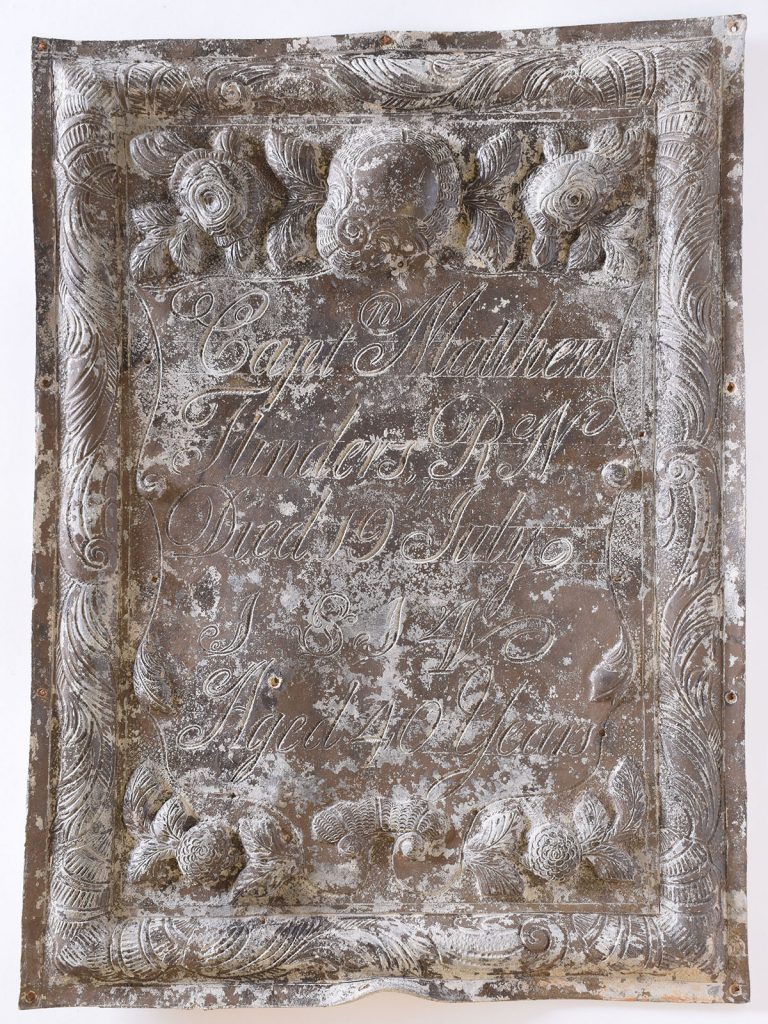Archaeological excavation at St James’s Piccadilly burial ground in Euston for HS2 is well underway and we are uncovering a large number of burials with surviving name plates. These plates allow us to identify the induvial buried. With over 40,000 burials expected to be excavated and roughly ten percent of those being identifiable, the opportunity to combine detailed osteological analysis with historical research is unprecedented.
Documents such as wills and coroners’ records can provide information such as date of burial, cause of death, occupation and address, and in some cases portraits and other personal accounts exist. These help to build individual biographic and life histories.
Against the odds, our archaeologists were astounded to recently uncover the remains of Captain Matthew Flinders, the Royal Navy explorer who led the first circumnavigation of Australia and is credited with giving the country its name.
The exceptional levels of preservation at the Euston site meant that Captain Flinders lead breast plate survived and is legible. It reads: Capt Matthew Flinders RN, Died 19 July 1814, Aged 40 years.

Capt Matthew Flinders breast plate (c) HS2, courtesy of MOLA Headland
The people buried in the 18th and 19th century burial ground of St James’s Piccadilly include individuals from all walks of life; paupers and nobility, women and children, artists and musicians, soldiers and sailors, inventors and industrialists.
For our archaeologists, studying the people lost to history offers the greatest opportunity to better our understanding of life and death in London at this time, hopefully shedding light on factors such as health and disease, social practices and lifestyle.
Having biographical information also presents an opportunity for our osteologists to test the methods they reply upon when analysing the sex and age of skeletal remains. Once excavated and studied, the remains will be reburied at a location agreed with the Archbishops’ Council and the Church of England.
The archaeological programme at St James’s Gardens in Camden, London, is being carried out by our experts on behalf of CSJV for HS2 Ltd. To find out more about the programme visit www.hs2.org.uk or for information on what is going on in your local area or how you can get involved head to https://hs2ineuston.commonplace.is/.

3 Comments
St. James, Hampstead Road, not St. James Piccadilly
Hi Alan,
The site was opened in 1788 as an overspill burial ground for St James's Church in Piccadilly.
I'd like to know if Matthew the wife of Flinders is also buried with him.
Leave A Comment